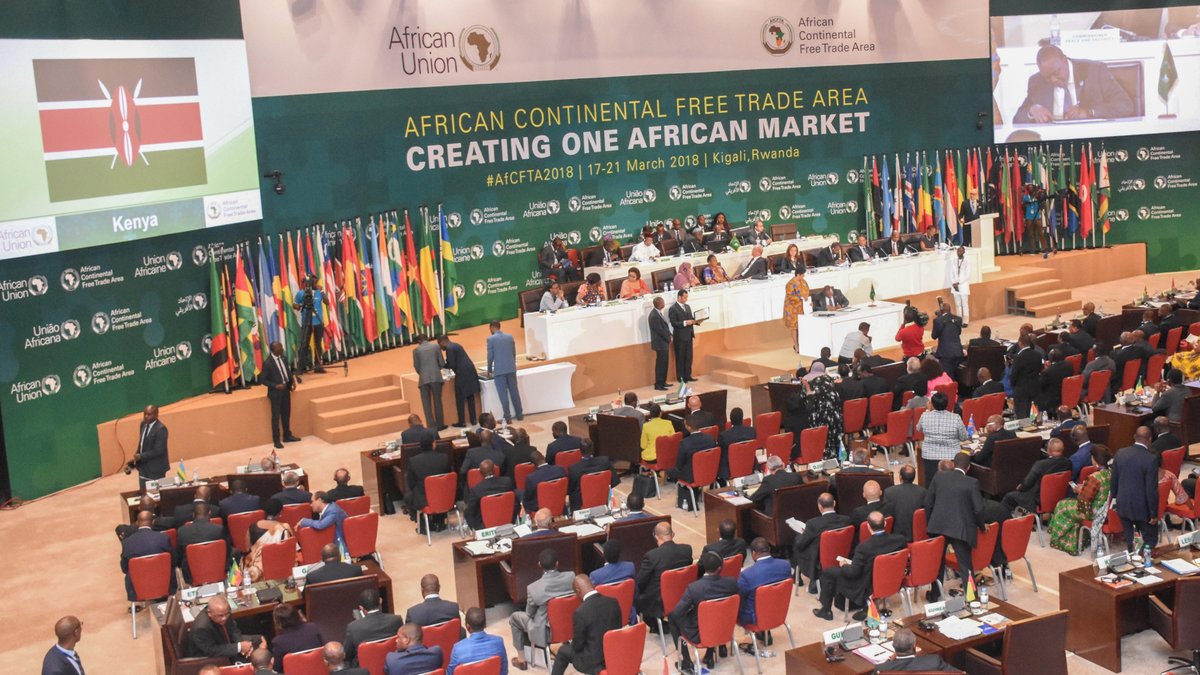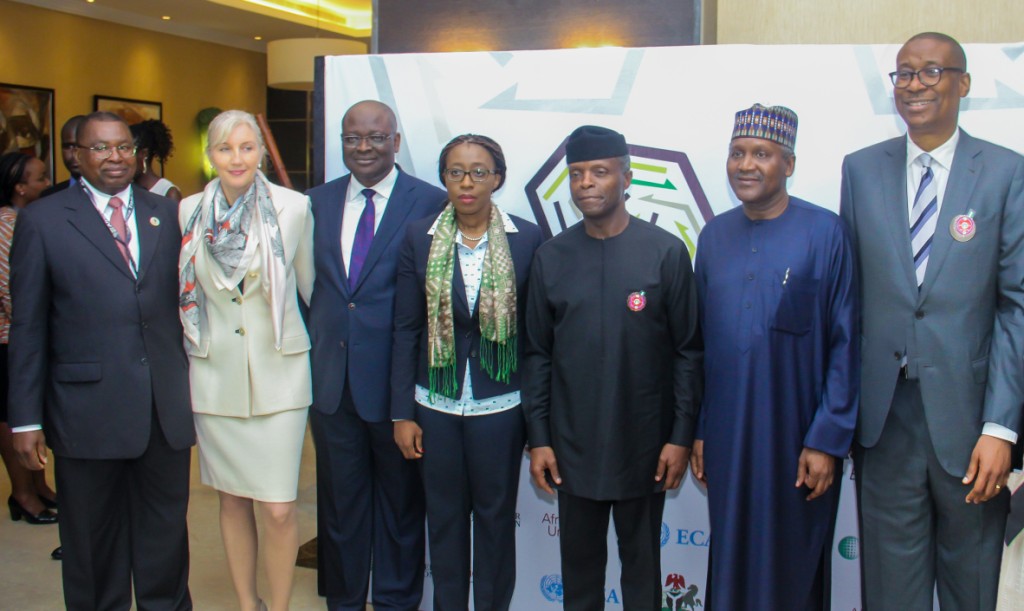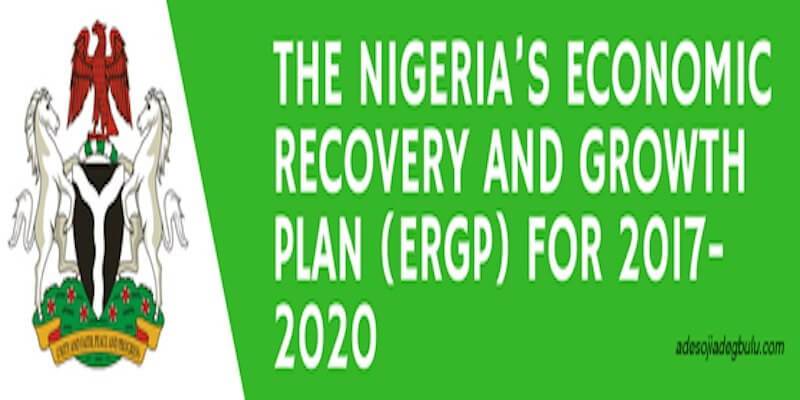Five days after the provisional takeoff of the African Continental Free Trade Area (AfCFTA) agreement came into effect on Thursday, May 30, 2019, nothing much had been observed in terms of trade traffic or deals.
Preliminary understanding was that the trade pact will potentially cover a market of 1.2 billion people, with a combined gross domestic product of $2.5 trillion, once passed by all 55 nations recognized as part of the African Union (AU), to become world’s largest free trade zone.
Recall that the minimum threshold of ratifications by 22 African countries was achieved on April 29, 2019, when Sierra Leone and Saharawi Republic signed up to the deal, with the agreement taking effect a month later.
Besides, the government of Burkina Faso put paid to its pledge to be the 24th country to deposit its instrument of ratification with the AUC last week also.
Business Hilights reports that all that is now left is for AU and African Ministers of Trade to finalize work on supporting instruments to facilitate the launch of the operational phase of the AfCFTA during an Extra-Ordinary heads of state and government summit on 7th July 2019,
However, three leading economies in the continent, including Nigeria, Egypt and South Africa are yet to sign the document, due to manufacturing stakeholders’ differences, there are real chances that AfCFTA may come to effect without the trio.
In his remarks at the opening of a two-day Stakeholder Dialogue on Continental Trade and Strengthening Implementation of the AfCFTA, in Addis Ababa, last month, Mr. Kwesi Quartey, the Vice Chair of the AUC, said Africa is on the brink of a great break through. He indicated that with the AfCFTA in operation, Africa with a population of 1.2 billion could have a GDP of $4.5 trillion.
The Dialogue is being held to among others, enhance stakeholder engagement on the implementation of the AfCFTA, build knowledge and expertise of all stakeholders on priority trade issues improve regular information flow on trade issues to key stakeholders, and suggest a framework for the establishment of the AfCFTA National Committees.
Participants at the Dialogue put together by the Coalition for Dialogue on Africa (CoDA), agreed that the prospects for trade in Africa are great, but still need serious peace and security, and other factors including education to stand as expected.
In Nigeria, experts are still divided on the after effects of joining the bandwagon at a time, the manufacturing index remain in the red which they say, may drive dumping which can further kill the ailing sector.
There had been pressure on Nigeria’s President Muhammadu Buhari to sign on for Nigeria, but he held the pressure by setting up an advisory committee on the matter to understudy the real implications of joining AfCFTA with the current nature of the economy.
Nigerian manufacturers are of the view that many of the economies that are rallying the agreement are mainly consumer nations that are not strong in productivity which makes them not vulnerable to dumping.
They argue that jumping into the AfCFTA now without stabilizing the productive sector will turn the Nigerian markets to dumping group and in the process, weaken the already productive capacity of local firms.
South Africa, Egypt also share similar views.









